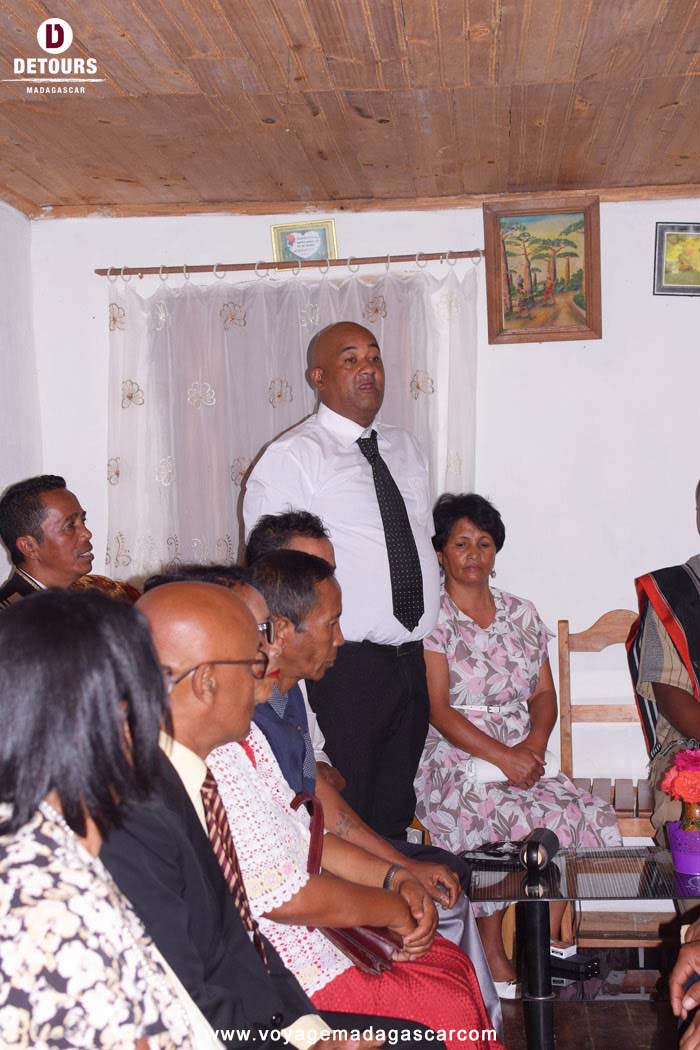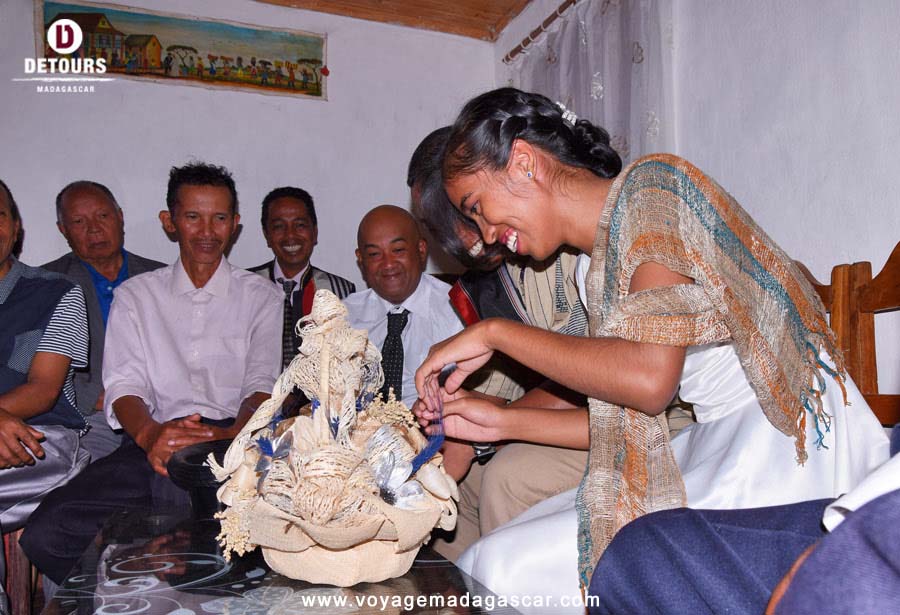
Traditional Malagasy wedding: A fascinating culture
Traditional weddings hold great significance for Malagasy people, with unique procedures unlike those in Europe. To complete a marriage, both civil and religious ceremonies are required. This fascinating cultural tradition offers insights into Malagasy family values.
The origins
The traditional wedding, known as vodiondry, literally translates to “sheep’s rump,” symbolizing the portion of meat offered to elders to honor them. In Malagasy culture, a marriage proposal is not only directed to the bride-to-be but also to her family, formally gathered. Dating a woman without having offered the vodiondry is frowned upon in society. Proposing marriage is seen as a sign of respect toward both families.
The marriage proposal
Before the vodiondry, two preliminary steps must be followed:
- Fiantranoana (entering the house): The suitor meets the family of his intended to seek their permission to propose.
- Fisehoana (presentation): This marks the first official meeting between the groom’s and bride’s families. During this stage, both families decide on a date to proceed with the tradition. Historically, this date was determined by a mpanandro(astrologer) who consulted the vintana (astrological signs) of the couple to select an auspicious day.


The traditional wedding ceremony in Madagascar
Once the formalities are completed, the wedding begins. At its core is the kabary, a series of speeches that can last several hours. This verbal duel involves two speakers—one representing the groom’s family and the other the bride’s family. Their eloquence and rhetorical skills reflect their respective family’s stature.
The groom’s family orator highlights the qualities of the groom and the merits of his ancestors while presenting compelling arguments to win over the bride’s family. In contrast, the bride’s family orator defends their family’s value and heritage with equal rigor.
During this exchange, monetary gifts are presented to the bride’s family, distributed among her parents, brothers, and uncles. This gesture is not seen as “selling” the bride but as compensating for her absence, as daughters often handle many household tasks.
The ceremony concludes with a shared meal to ease the formal atmosphere after the long speeches. Once the wedding is complete, the couple is recognized as married in the eyes of society, and the bride joins her husband’s family. However, disagreements between families can lead to the marriage being postponed or canceled, which is considered a disgrace for the groom’s family.
It is worth noting that each ethnic group in Madagascar adds its own distinctive touch to the wedding ceremony, making this tradition even more diverse and rich.
